In the context of digital assets and carbon credits gradually becoming a global trend, Vietnam is assessed to have great potential to join this "playground", provided that a solid and practical legal framework is established. International experiences and recommendations at the Workshop "Bank Collateral - Current Concerns" organized by Banking Times on April 28, 2025 revealed many valuable suggestions for Vietnam.
From world experience to opportunities for Vietnam
According to Dr. Giacomo Merello, Chairman of the Antigua & Barbuda Digital Asset Business Promotion Council, Special Economic Envoy of the Prime Minister of Antigua and Barbuda to the Republic of Singapore, Blockchain is becoming a fundamental revolution, not only in the financial sector but also spreading strongly to the entire economic life.
The nature of Blockchain is a decentralized network that maintains a digital ledger that has opened a new era for financial assets such as: Bitcoin, Ethereum, Stablecoin.
 |
| Workshop “Bank collateral - Current issues of concern” organized by Banking Times. Photo: Hoang Giap |
Notably, some pioneering countries have officially recognized crypto assets as part of the financial system. The Swiss National Bank (SNB) accepted digital bonds as eligible collateral in February 2023, marking a historic milestone. Most recently, Swiss Exchange (SIX) also launched a digital mortgage service, allowing the simultaneous use of cryptocurrencies and traditional securities, contributing to reducing counterparty risk and streamlining operations.
In Malta, the Virtual Financial Assets Act of 2018 laid the groundwork for the country to become a fintech hub, while Singapore, with its “open but regulated” stance, requires digital token service providers to be strictly licensed, while confirming that digital tokens are legal assets that can be held in trust.
Returning to Vietnam, Dr. Giacomo Merello emphasized that nearly 17 million Vietnamese people are holding digital assets by 2024, placing Vietnam in the 5th position globally in terms of interest and 3rd in terms of exchange usage. This is a huge potential, requiring a fast, flexible and safe legal corridor. He suggested that Vietnam needs to legalize digital assets as collateral, establish clear licensing and custody rules, and strictly control financial risks.
In particular, he emphasized the principle of parallelism: promoting innovation, attracting investment, and protecting the financial system against the risks of money laundering and terrorist financing. Vietnam is also recommended to consider applying a light tax rate of 0.1% on cryptocurrencies to encourage development.
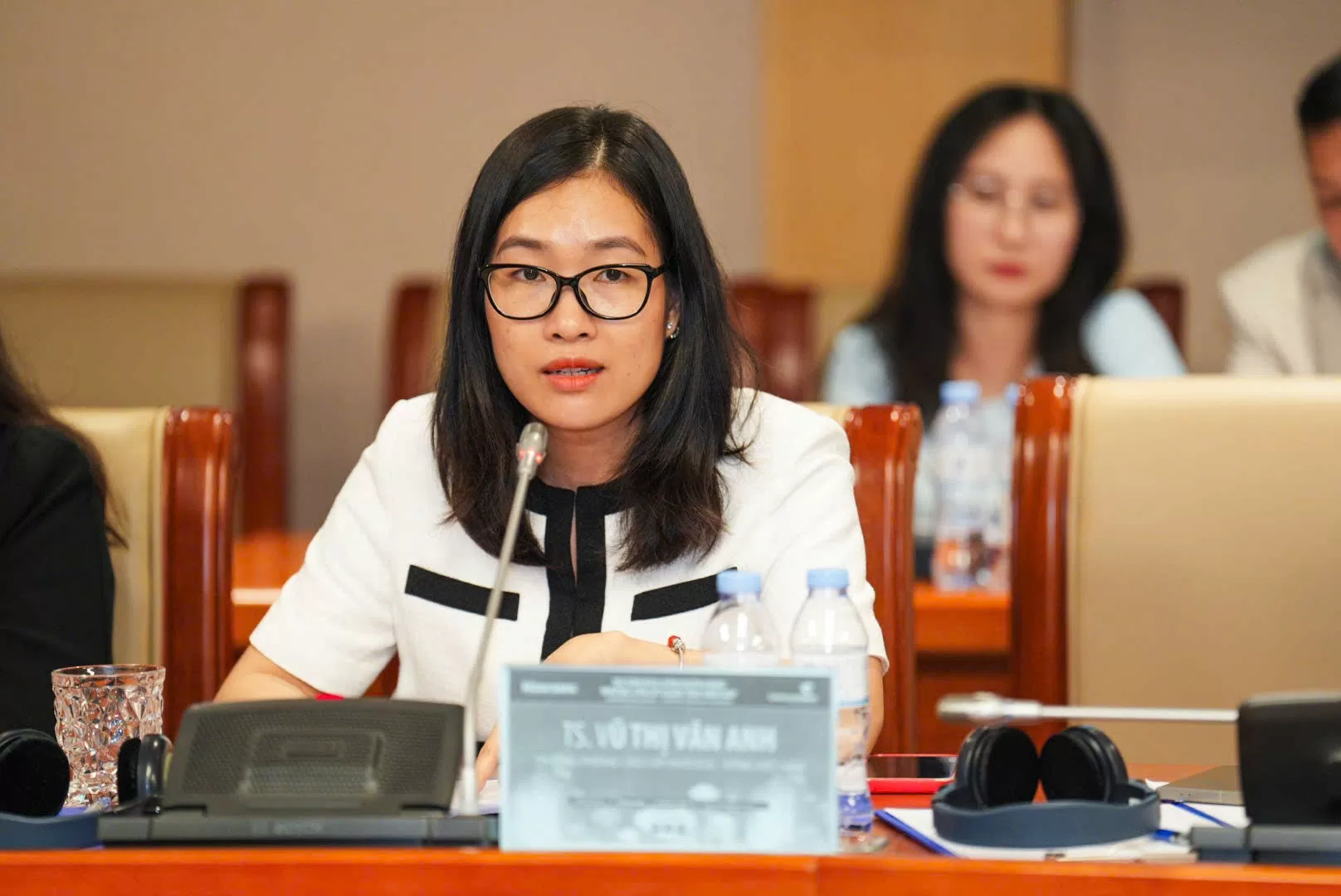 |
| Dr. Vu Thi Van Anh, Senior Manager of ESG Division - KPMG Vietnam shared. Photo: Hoang Giap |
In addition to digital assets, Dr. Vu Thi Van Anh, Senior Head of ESG - KPMG Vietnam, introduced a new direction: carbon credits as a type of collateral. She said that carbon credits representing the reduction or removal of one ton of CO₂ play an essential role in the global effort to reduce emissions and achieve sustainable development goals.
Currently, Vietnam has issued Decree 06/2022/ND-CP, laying the foundation for the operation of a carbon credit trading floor expected to be launched in 2028. However, the major challenges remain high project development costs and the low rate of enterprises participating in the carbon market. According to Dr. Vu Thi Van Anh, for carbon credits to become a real collateral asset, Vietnam needs to stabilize the market, develop clear standards, and have a systematic pricing and risk assessment mechanism.
Dr. Vu Thi Van Anh also noted that carbon credits should only be accepted as collateral after a solid legal framework is in place and the market operates transparently. She suggested studying international experience, especially the models of Thailand and Europe, to design standards for pricing, managing and trading this new type of asset.
The legal corridor must be fast, strong and practical enough.
Lawyer Truong Thanh Duc said that, in principle, digital assets or carbon credits can completely become collateral if they satisfy two core conditions: Having ownership rights and not being banned from trading. However, he warned that the price fluctuations of these assets pose huge risks to banks, similar to what happened with gold or real estate.
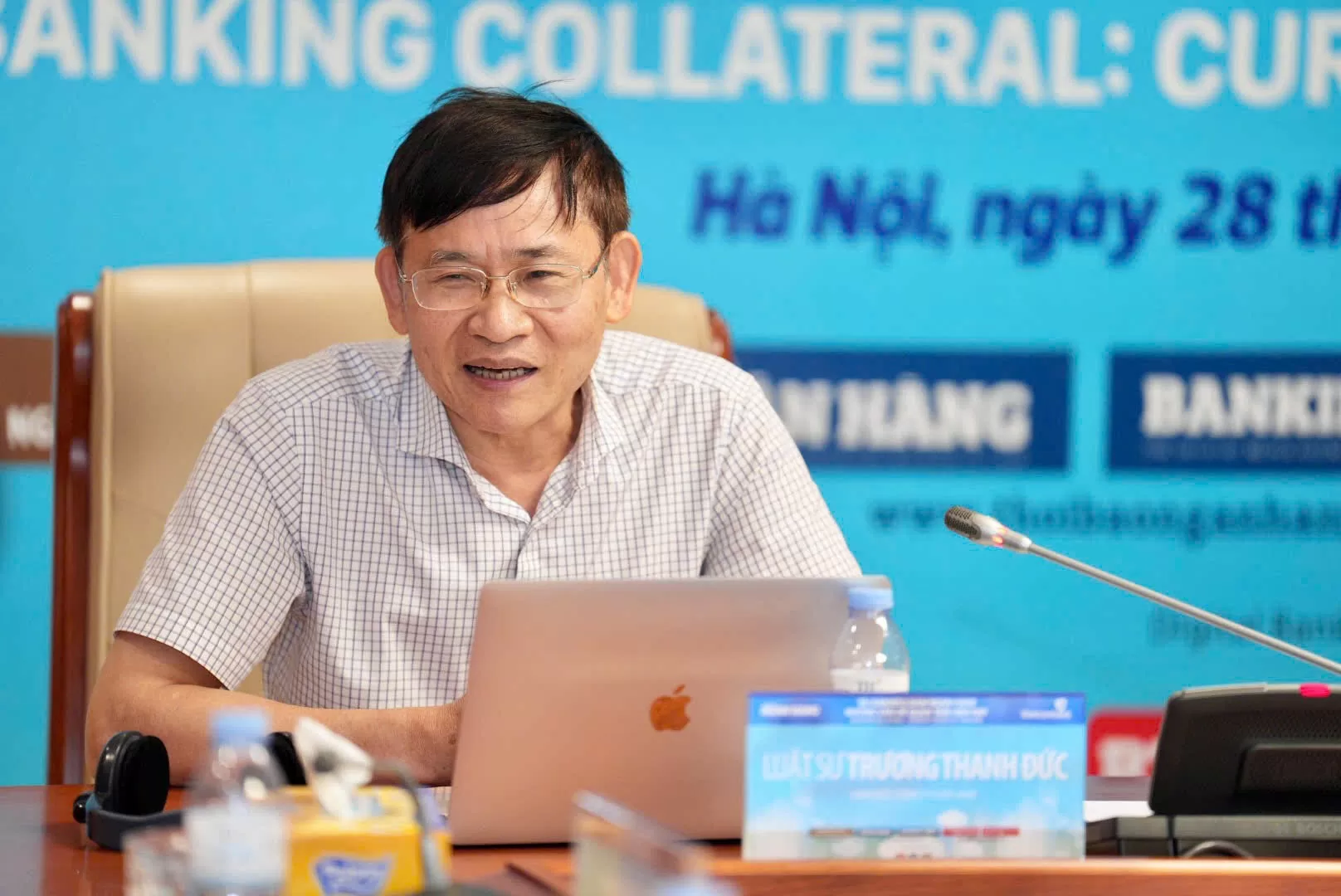 |
| Lawyer Truong Thanh Duc shared at the workshop. Photo: Hoang Giap |
From a more practical perspective, Mr. Do Giang Nam, member of the Board of Members of the Credit Institutions Asset Management Company Limited, emphasized that the necessary condition is to complete the legal framework, and the sufficient condition is the acceptance of the bank, based on the stability and ability to handle assets. With carbon credits, he said that only when the market is fully operational in 2028, will carbon credits truly become a reliable collateral.
Dr. Lawyer Vu Van Tinh frankly suggested that Vietnam should issue a separate law or decree on digital assets, clearly defining the responsibilities of related parties, requiring trading floors to register, publicly disclose risks, and develop a legal mechanism for smart contracts. According to him, allowing digital asset mortgages in real estate transactions will open up great opportunities for foreign investment and optimize tax revenue.
From a business perspective, Mr. Nguyen Kim Hung, Chairman of the Board of Directors of Kim Nam Group, pointed out that the biggest challenge is still the valuation of digital assets and risk management. He believes that transparent and effective technological solutions are needed to support this process, instead of relying solely on the traditional legal framework.
According to experts, facing new opportunities, Vietnam has a great opportunity to become a bright spot on the global map of digital assets and carbon credits. However, as experts have warned, the opportunity will only truly become a reality when there is a legal corridor that is fast enough, strong enough and practical enough.
Completing the legal framework not only helps banks and businesses feel secure in exploiting new types of assets, but is also a strategic step for Vietnam to promote green finance, digital economy and improve its position in the globalized playing field. However, as the blockchain flow is both strong and volatile, Vietnam needs to steer the policy boat with sobriety, courage and clarity.
Implementing Directive No. 05/CT-TTg dated March 1, 2025 of the Prime Minister, the State Bank of Vietnam, in coordination with the Ministry of Finance, is urgently and actively researching to propose a legal framework to manage and promote the development of digital assets and digital currencies. This is an important step to create a clear and transparent legal corridor for this field. At the same time, it promotes innovation and ensures a safe investment environment. |
Source: https://congthuong.vn/viet-nam-truoc-nga-re-tai-san-so-tin-chi-carbon-385317.html
















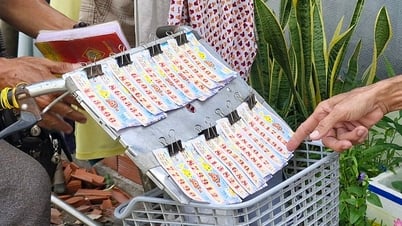





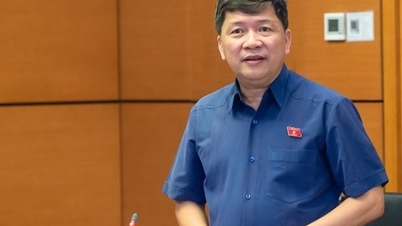














































![[Photo series] Many Dong Nai products participate in the Southern Fruit Festival in 2025](https://vphoto.vietnam.vn/thumb/402x226/vietnam/resource/IMAGE/2025/6/1/dacb19003cee4155a6945db67914d9cf)

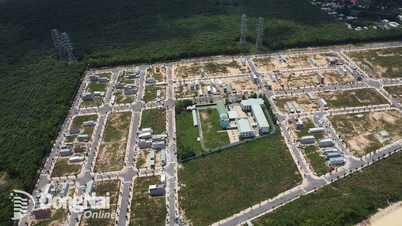




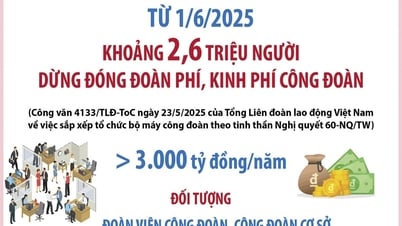

















Comment (0)